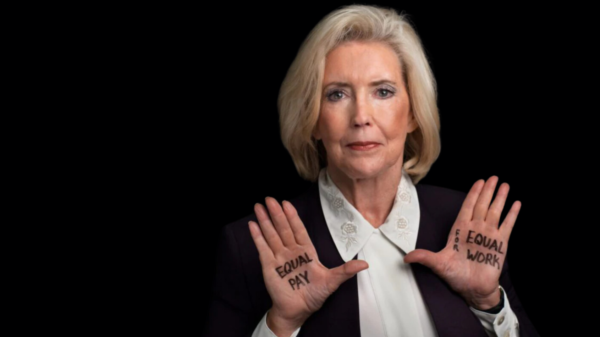By Bill Britt
Alabama Political Reporter
Since becoming Acting Chief Justice of the Alabama Supreme Court, Lyn Stuart finally achieved something that took 12 years to accomplish. On September 7, 2016, Stuart received $17,651 in backpay from 2004, according to the Open Alabama Checkbook.
How did Stuart earn backpay from 12 years ago and how was Associate Justice Mike Bolin key to her receiving it?
Under Alabama Code Title 12-10A-1 (d)(1) and (2), effective October 1, 2000, all circuit and district judges, Supreme Court Justices, and judges of the appellate courts were given a yearly pay increase of “1.25 percent for every year that they have served as judges or justices of a state court to a maximum of 25 percent of the base salary,” reads the code.
However, in 2004, because of budget constraints, the Legislature passed legislation that ended the bench experience portion of a judge’s pay. “(e) Notwithstanding the provisions of subsection (d), no circuit judge, district judge, Supreme Court Justice, or judge of the appellate courts shall have his or her salary increased for bench experience after May 26, 2004.”
But there was another change which became effective on April 23, 2006, when the legislature reinstated bench experience compensation but for “circuit and district judges only.”
Under the new rules, all appellate judges were excluded, including Supreme Court Justices.
In 2005, then Chief Justice Drayton Nabors asked for an Attorney General’s opinion regarding the eight month period from November 2003 (the beginning of that fiscal year) through May 2004 (the effective date of the new legislation), and whether or not this period could be calculated for bench credit for a judge or justice who went to a higher office in January 2005.
The key words here are “higher office.” The passage reads, “bench credit for a judge or justice who went to a higher office in January 2005.” The Attorney General found that the time could be counted for judges and justices ascending to a higher office.
But Stuart did not ascend to a higher office as stipulated in the Attorney General’s Opinion. Stuart did reach a higher position when she rode Judge Roy Moore’s coattails on to the Supreme Court in 2000 but that was before the cut and reinstatement. She, like others on the Supreme Court and all appellate courts, was effected by the 2004 legislation eliminating the bench experience pay. However, Stuart, after 12 years, did receive backpay and she is the only appellate judge serving on the Supreme Court to do so.
How did Stuart receive over $17,000 in pay when she didn’t ascend to higher office per the opinion?
On May 6 of this year, Stuart became Acting Chief Justice.
In June, Attorney General Luther Strange answered a request by Associate Justice Bolin concerning backpay owed to justices from 2005. Bolin received his response just five weeks after Stuart became Acting Chief Justice.
In his letter asking for an opinion, Bolin states Stuart “recuses” herself from the matter. Stuart had been involved in the request before the release of the Attorney General’s Opinion but was not acting chief justice at that time.
In the 2016 opinion, Attorney General Strange noted a two-year statute of limitation was imposed on receiving back pay which would have meant Stuart’s claim was a decade too late. However, he added, “the comptroller may recognize a moral obligation founded on a claim of substantial pecuniary right, to pay the Justice what the Justice is owed.”
It took Stuart twelve years and help from Bolin to get her back pay, overcoming the additional burden of the two-year statute of limitations problem cited in the June 2016 Attorney General Opinion. She accomplished this after she became the Acting Chief Justice.
Stuart is serving as Acting Chief Justice pending a final ruling on suspended Chief Justice Roy Moore’s appeal before a select Supreme Court. Moore was suspended without pay for the remainder of his term by the Court of the Judiciary. The documents in the case remain under seal, despite a lawsuit brought by The Alabama Political Reporter (APR). On December 7, the Supreme Court ordered the Court of the Judiciary (JIC) to show cause why the court records remained sealed following APR’s motion. The order to show cause was not sent to APR or its attorney of record in the case.





















































